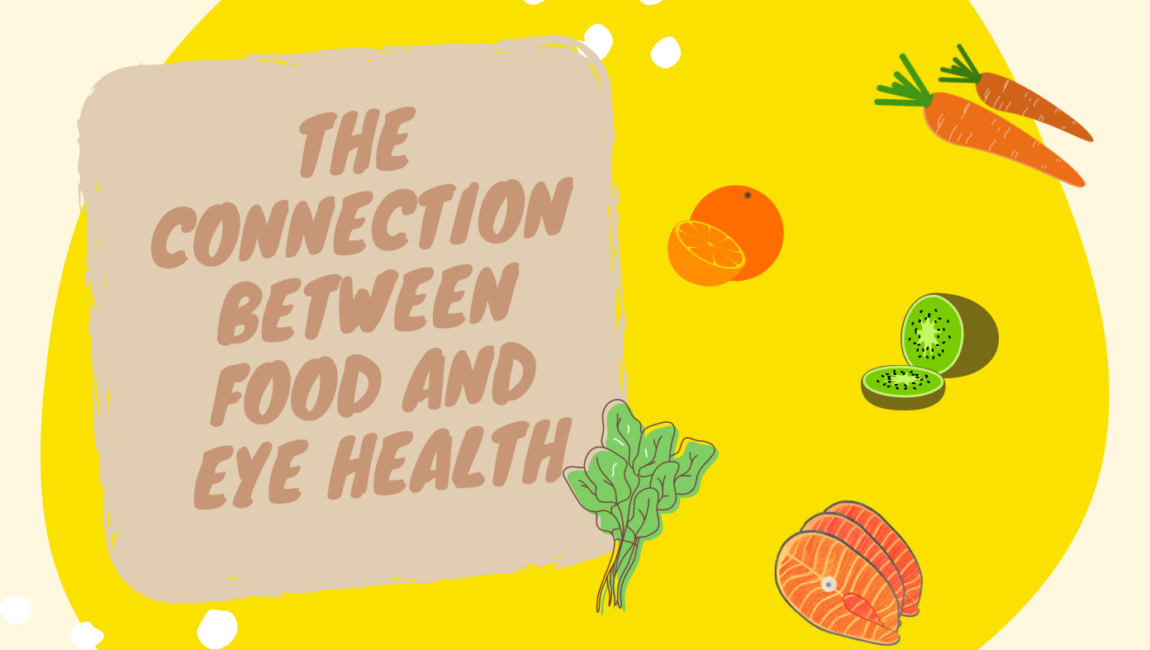Introduction:
Our eyes are not only windows to the world but also vital organs that enable us to experience the beauty around us. Taking care of our eyes is crucial for maintaining good vision and overall eye health. While regular eye examinations and proper eye care habits are important, we often overlook the role that nutrition plays in keeping our eyes in optimal condition. In this blog post, we will explore the connection between food and eye health and discover how certain nutrients can contribute to maintaining healthy eyes.
-
Antioxidants for Eye Health:
Antioxidants are powerful compounds that help protect our cells from damage caused by free radicals. When it comes to eye health, antioxidants play a vital role in preventing age-related macular degeneration (AMD) and cataracts, two common eye conditions that can lead to vision loss. Foods rich in antioxidants, such as fruits and vegetables, help combat oxidative stress and reduce the risk of these conditions. Include colorful fruits like berries, oranges, and kiwis, as well as leafy greens like spinach and kale, in your diet to ensure a good intake of antioxidants.
-
Omega-3 Fatty Acids for Eye Moisture:
Dry eyes can be uncomfortable and may even affect our vision. Omega-3 fatty acids, particularly docosahexaenoic acid (DHA), are essential for maintaining eye moisture and reducing the symptoms of dry eyes. Cold-water fish like salmon, tuna, and sardines are excellent sources of omega-3 fatty acids. For non-fish eaters, options like flaxseeds, chia seeds, and walnuts provide plant-based alternatives. Including these foods in your diet can help alleviate dry eye symptoms and support overall eye health.
-
Vitamins and Minerals for Eye Vitality:
Certain vitamins and minerals are crucial for maintaining eye vitality and preventing eye diseases. Vitamin C, vitamin E, and zinc are known for their role in reducing the risk of developing advanced AMD. Citrus fruits, bell peppers, almonds, and oysters are great sources of these nutrients. Additionally, vitamin A, commonly found in carrots, sweet potatoes, and spinach, is essential for maintaining good night vision. Including a variety of foods rich in these vitamins and minerals can contribute to the long-term health of your eyes.
-
Maintaining Healthy Blood Sugar Levels:
High blood sugar levels can have detrimental effects on our overall health, including our eyes. Diabetic retinopathy is a condition that occurs when blood vessels in the retina are damaged due to diabetes. To maintain healthy blood sugar levels, it is important to follow a balanced diet that includes whole grains, lean proteins, and plenty of fruits and vegetables. Avoid excessive consumption of sugary and processed foods to reduce the risk of developing diabetic retinopathy.
-
Hydration for Eye Moisture:
Proper hydration is essential for maintaining eye moisture and preventing dry eyes. Drinking an adequate amount of water throughout the day helps in maintaining the natural tear film that keeps our eyes lubricated. Additionally, consuming hydrating foods like cucumbers, watermelon, and celery can contribute to overall hydration and eye health. Remember to drink enough water and include hydrating foods as part of your daily routine.
Conclusion:
When it comes to eye health, the saying “you are what you eat” holds true. A well-balanced diet rich in antioxidants, omega-3 fatty acids, vitamins, and minerals is essential for maintaining healthy eyes. By incorporating eye-friendly foods into our daily meals, we can nourish our eyes and reduce the risk of developing common eye conditions. Remember, caring for your eyes goes beyond just visiting the eye doctor; it starts with the choices you make in the kitchen. Let’s prioritize our eye health and enjoy the world.

